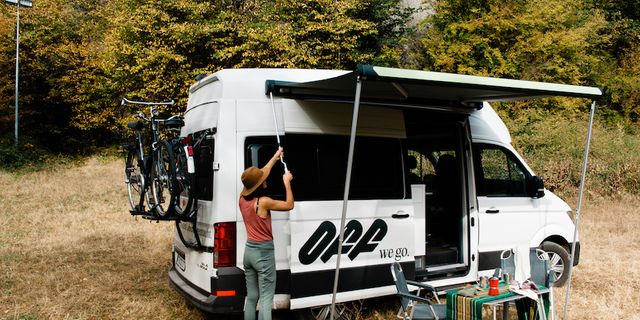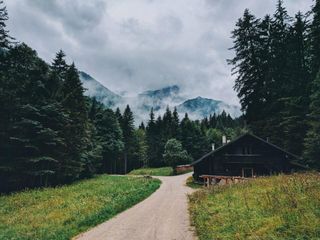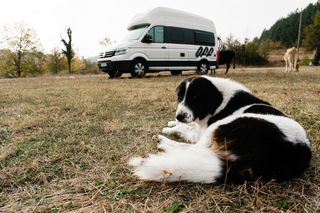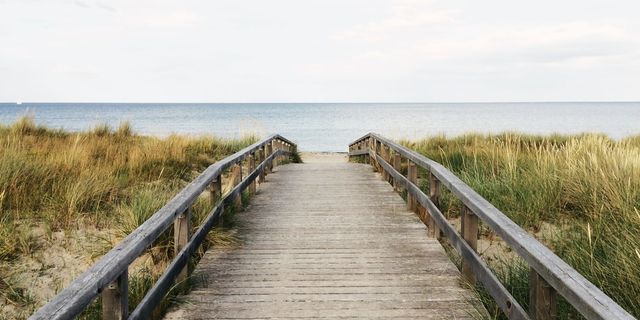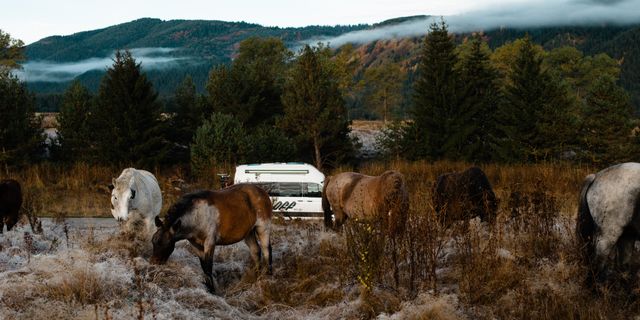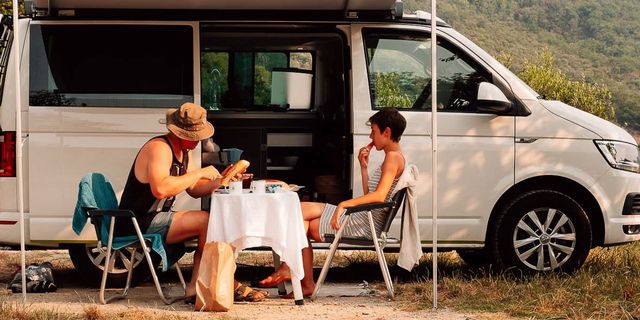One could say that camping has almost become Germany's new national sport . If you ask people in other countries what their ideal vacation looks like camping usually ends up as one of the less common answers. Why squeeze into a stuffy tent when there's hotels and luxury resorts everywhere at the Playa Es Trenc? This does not apply to Germans. Year after Year they are preparing their camping trips through many European countries but also travel around Germany quite often as there are a lot of beautiful places to explore right in front of their doorstep. Many find it much more adventurous to spend the night away from official campgrounds and go camp wild. But is it that easy in Germany? And is it even allowed? And what do you have to take into consideration? We will give you all the information on wild camping in Germany!
Right away: Wild camping in Germany is basically prohibited by law but there are still grey areas as rules are varying between federal states. To give you a small overview we have taken a closer look at a few federal states:
Bavaria:
Bavaria unfortunately opposes wild camping with a zero-tolerance policy. In the case of unlawful overnight stays in nature reserves a fee of up to 2,500 € has to be paid. That is Europe-wide nearly top value.
Brandenburg:
Let’s move on to a wild-camper-friendly state: In Brandenburg hikers, horseback riders and canoeists are generally allowed to set up their tents for overnight stays. Private terrain must still be avoided, of course.
Baden-Württemberg:
Unfortunately, Baden-Württemberg has similarly strict laws as Bavaria regarding wild camping. Only the penalties are more “favorable”. Here, 500 € are due for violation.
Schleswig-Holstein:
Wild camping is basically prohibited in Schleswig-Holstein but there is a great exception: The state has created a project called “Wild Schleswig-Holstein” and it includes 20 overnight camping sites in nature on which it is officially allowed to rest for one night.
North Rhine-Westphalia:
NRW frowns upon wild campers, as do its neighboring states. About €80 is charged per night which is comparatively little. But there is some good news: Hohes Venn-Eifel Nature Park allowes wildcamping for a fee of 10€ per night.
Mecklenburg-Western Pomerania:
Here, hikers are generally allowed to spend the night in the great outdoors as well. But you should stay away from nature reserves and national parks.
However, we have to advise you against wild camping in national parks and nature reserves. If you are caught you can expect a high fine and a charge. In addition, Germany is one of the most densely populated countries in Europe which makes confrontation quite unlikely.
Just because wild camping is forbidden in Germany it doesn’t mean that there are no possibilities to spend the night away from campsites. We would like to show you a few legal and more sustainable alternatives.
Trekking sites
So-called trekking sites form the gap between wild camping and campsites. They were originally designed for hikers and offer minimal facilities. These sites are not free of charge in most cases but the cost per night is 10-15 € and therefore quite affordable.
Private pitches
Private sites are another alternative especially if you are travelling by camper or motorhome. On sites such as alpacacamping.de private individuals offer their garden, yard or meadow as a camping pitch. Bookings can be made online without having to wait for confirmation from the owner. Anyone who's looking for freedom and nature while camping should definitely keep this possibility in mind.
Bivouac
If that's still not “wild” enough for you then you have one more option: bivouacking. Bivouacking describes sleeping under the open sky. In all federal states - except Berlin - it's also allowed to stretch a tarp to be protected from bad weather and wind. The whole thing is not to be confused with the classic camping which is prohibited. Bivouacking on the other hand exists in a legal grey area.
Do not light an open fire! Not only does this disturb animals but it can also be very be dangerous. Especially in dry months as there is a danger of forest fires in Germany and the penalties exceed the fine charged for illegal wild camping by far.
Wild camping in Germany is still a very sensitive issue. But there are so many alternatives! By using private campgrounds or trekking sites you can still avoid touristic masses and overcrowded campsite crazyness. Still: Always get information on the local regulations in your federal state. We hope we could give you some tips to help making your next road trip by car or camper unforgettable!
